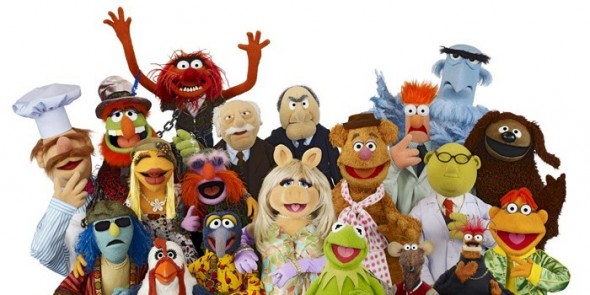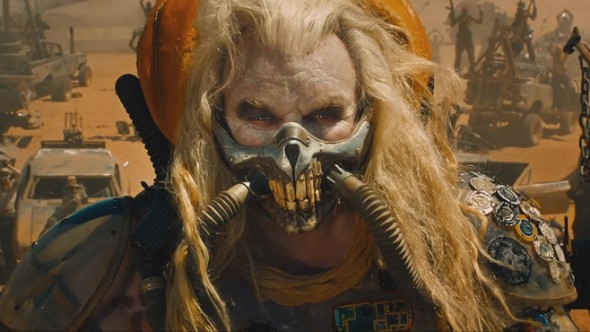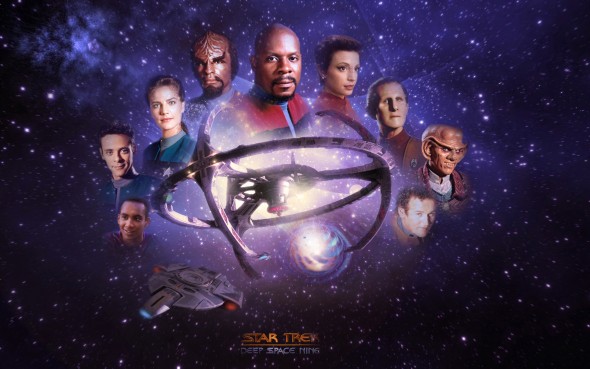In the early days of OTI, we used Thanksgiving as an opportunity to reflect on what we were thankful for in the pop culture, but we haven’t observed that tradition for five years. This year we’ve decided to revive the tradition, by reflecting on what we’re thankful for in pop culture right now, and of course by taking a step back and posing the meta-question about what it means to be thankful for pop culture in the first place. -Ryan Sheely
Matt Belinkie: So guys, what are you thankful for in pop culture this year? What blessings have been heaped into our cornucopias?
Ryan Sheely: I’ve maybe mentioned this before, but the pop culture trend that I’m thankful for this year is the stunningly high quality of 30 Minute TV comedies. As I’ve gotten busier this year, my consumption of hour long prestige dramas has gone way down, and most of that empty space has been replaced by these comedies.
I think part of this is that the length is just right, but the sheer breadth of great 30 minute comedies is amazing. Many of these are animated shows, including Bob’s Burgers, Archer, Rick and Morty, Bojack Horseman, and South Park. It is interesting how these cluster on networks. Aside from South Park, I also watch Broad City and Review on Comedy Central and have just started to get into Nathan for You. In addition to Bojack, Unbreakable Kimmy Schmidt and Master of None are other favorites of mine that are on Netflix. And then Fox also has Brooklyn Nine-Nine and The new Rob Lowe/Fred Savage show The Grinder, which isn’t perfect yet, but has a lot of promise.
MB: Hey, you know what other TV show I’m thankful for? The Muppets. I know the consensus is that it’s no good, but I eat up every episode like Animal at a Hometown Buffet. It is funny and sweet, and I ‘ship Sam the Eagle and Janice SO HARD.

Also, I’m glad you brought up Netflix, because I’m thankful for the astonishing run of quality programming over there. I honestly want to read a book about how those guys came out of nowhere to produce a fantastic show seemingly every month, like it’s EASY. For dramas: House of Cards, Orange Is the New Black, Daredevil, and Narcos. For comedies: Arrested Development, Wet Hot American Summer, BoJack, Kimmy Schmidt, and Master of None. These guys brought Mr. Show back from the dead, and I haven’t even watched all of it because Jessica Jones is TOO DAMN GOOD. And their first feature, Beasts of No Nation, is rocking a 90% on Rotten Tomatoes and getting real Oscar buzz.
RS: I’m really thankful for the onset of Netflix original programming, because it means that I actually USE Netflix… there was a period where I wasn’t using it a lot (other than just building an aspirational viewing queue that I never watched), but now I definitely get my money’s worth just from the original series that they produce.
I actually already forgot about Wet Hot American Summer in my list of 30 minute comedies, probably because I watched that in one sitting.
MB: Are you thankful for all episodes being released at once? I have slightly mixed feeling there. There’s no chance to go on a journey week by week, read the recaps, get excited for the next episode.
RS: I tend to have a stronger emotional attachment to (and a better recollection of) the shows that I spread out more over a few days or weeks. I binge-watched Wet Hot and Kimmy Schmidt and have only vague memories of specific funny moments or plot points. Same with the Netflix drama Bloodline, which I basically watched in one whole day when I was sick.
In contrast, I’ve paced out House of Cards, BoJack, and Master of None a bit more. With shows that I like the most, I’m more likely to turn it off and marinate for a bit, whereas shows that I like, but am less charged up about mentally, I just let the autoplay keep going until Netflix checks in to see whether I’m still alive.
The current Amazon show Man in The High Castle is interesting. I’ve been pacing it out more, but each episode ends on a 24/Lost-style cliffhanger, making it tempting to hit that “next episode” button.
MB: Netflix obviously knows what it’s doing with the binge-able releases. But I do think they’re sacrificing something, both in terms of keeping their shows in the public eye over a longer period of time, and maybe the longterm attachment of their viewers.

Moviewise, I think the surprise I’m the most thankful for this year was Mad Max. The fact that it somehow emerged from the studio system without being compromised and watered down and CGIed to death is just great. Sure, it may have been a reboot/sequel, but in today’s blockbuster climate it felt refreshingly original.
Zooming out, I’m thankful for a new trend of reboots that are actually pretty damn good. Mad Max. Jurassic World. The upcoming Rocky sequel Creed. And not to jinx it, but maybe Star Wars: Episode VII? I think the ultimate thing to be thankful for will be a sequel to Return of the Jedi, more than 30 years later, that sticks the landing.
RS: I think your choice of “reboot” is interesting. I feel like that word doesn’t quite describe what’s going on with these sequels. In contrast to the Batman Begins/ Casino Royale school of starting the story again, these are more like breaking out the jumper cables to get the narrative running again.
MB: I think it’s a positive development that they’re trying to keep some continuity attached. It’s like renovating a house while preserving as much of it as you can, instead of completely leveling it. I know the Ghostbusters movie coming out next year is supposed to wipe the slate clean, but even there they went to great lengths to get cameos from the original cast.
RS: I like the idea of “renovations” rather than reboots; I think it is a good identification of a trend/pattern, and I agree that it is making for some interesting films, even in our sequel-heavy times.

Pete Fenzel: I’m thankful for Star Trek: Deep Space Nine. I’ve been watching it on Netflix in order and I’m so pleased and moved by how it speaks to the current difficult political and cultural moment, it has been a tremendous help to me, as somebody trying to muddle through with slightly different discursive ruts in his brain, as somebody looking for sense in an environment of disorientation and upset (sense, but not diminished complexity or nuance), and as a leader in other projects who has a lot to learn about managing through a plurality of interests. In a time that feels very alien and unfamiliar sometimes, seeing it through the eyes of familiar characters whom I never knew were operating on this level has been a considerable balm and avenue toward organizing thoughts.
MB:
PF: Yes. It’s so much better on the re-watch. I never would have gotten most of this stuff as a teenager though. On average, it’s the best Star Trek TV show by a pretty big margin. But yeah, it’s not the most fun.
MB: So how are you using the word “best”?
PF: It is the best in term of providing the most intellectual interest, aesthetic beauty, beauty of ideas, compelling aspect, sublimity, characterization, plotting, richness, texture and balance. And the funny parts are probably funnier too. And it has the most interesting and probably healthiest relationship with metaphor and fiction versus the real world since the original series. Maybe it’s just gotten better with age.
Richard Rosenbaum: I agree that DS9 was the best Trek. It is a LOT more nuanced than anything before or after, does much more interesting stuff with different cultures coming into conflict, and individuals coming into conflict with their own culture, character development in general. It prefigured Game of Thrones in a lot of ways, I think, in its political storytelling.
Romantic relationships are always awful in Trek, though. Always the weakest link.I never believed Worf+Jadzia.
PF: That relationship is so dumb. Like if they were your friends and were dating you’d never talk about them except to note how weird and boring they are together and how it probably won’t last. I would have respected them so much if they actually called off the wedding in the wedding episode. There really was no reason to go through with it and all the objections people raise make sense. Jadzia should have dated Quark. That would have made more sense. They were kind of on the same page about stuff and could at least have held each others’ interest credibly.
Or Jadzia should have had an affair with general Martok if she liked Klingons so much.
What the show really wants is a girl girl relationship between Kira and Dax
But Xena was the enemy. And they had Bashir and O’Brien already, who are great.
MB: Sorry, when you say Xena is the enemy… do you mean the Warrior Princess? Like, because there already was one pseudo-lesbian relationship in the fantasy space they couldn’t have one in the sci-fi space?
PF: I mean that Xena: Warrior Princess was a competing show in the same time slot in some markets from 1995-1999. I’ve read in some accounts from the time that losing viewers to Xena was a concern in the show’s production and part of why DS9 changes tone in subtle but decisive ways around Season 3-4 (about when they get the slightly different, more upbeat theme song). This is also around where they started working gay subtext into Bashir and O’Brien’s relationship. That does drop off after a year or two, but it’s pretty obvious when it shows up.It’s entirely possible the specific rivalry with Xena was only one person’s take, and that the show didn’t actually change the way it did for that reason, but it makes sense to me.
RR: I’ve always felt like the Bashir/O’Brien relationship was just intended to be a regular male buddies thing until the fledgling internet projected their sexualization of everything onto it, and the writers were just like, sure, what the hell.
MB: Okay, we’re thankful for DS9. Duly noted.
Ryan, you like music, I’m told? Are you thankful for any of that? I suppose you’d have to step back and ask what it means to be thankful for a piece of pop culture, as opposed to merely a fan of it. I suppose thanks implies that there’s something unlikely about the fact it exists at all.
RS: I guess part of how I think about pop culture that I’m thankful for is that I try to identify works or trends that really take over my brain during the year. These are things that add something to how I engage with other parts of the pop culture.
MB: So a piece of pop culture you’re thankful for is like a spice that makes everything else taste better, or at least differently. Or maybe to put it another way, it surprises you. It entertains you in a way you didn’t see coming? But let’s get specific – what album would you put in this category?

RS: One album I’m thankful for is the self-titled debut album by a rapper named Fetty Wap. He had a single, “Trap Queen” that dominated the singles charts all year, and I never really liked it. It felt like a novelty song, in terms of the rap-singing hybrid and the subject matter (a drug-making love song).
The album made me appreciate the single (and the subsequent singles) a lot more, as the whole album has a really cohesive sound. It is remarkable because it has spawned like 4-5 songs that have charted, but doesn’t have production or guest spots from like a plethora of big name stars. Instead it is just Fetty Wap and his friends from Paterson, New Jersey, the Remy Boyz (named after Remy Martin 1738 Cognac).
It definitely is influenced by some trends in contemporary rap, like the way his vocals are processed and how he flows between singing and rapping… but all of these sounds are very much interpreted and re-interpreted by him and his collaborators, creating something really strange and interesting, but also very in line with contemporary pop.
So I’m very thankful for the album as a whole, both because it recontextualized the singles (and made me like them more)and because it creates this very odd and interesting world and invites you to live in it for a while, soaking in the references to Remy Martin 1738 Cognac and Liu Kang from Mortal Kombat.
Add a Comment